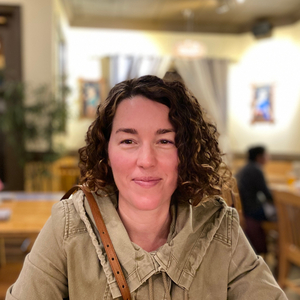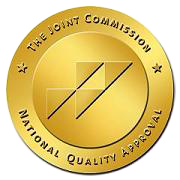Thanksgiving and Eating Disorders: 15 Tips to Help Throughout the Day
By Britt Berg, M.S.
Thanksgiving is approaching. This can be a complicated holiday for anyone struggling with food or body image, with such a sharp focus on food, eating and mealtime gatherings. The trauma behind the origins of Thanksgiving, often historically misrepresented, also makes it a triggering time, especially for Indigenous people in recovery.
Are you looking for ways to get support or maintain your recovery as the day gets closer? Here we share a variety of skills to help you find joy and connection this Thanksgiving. (These tips can be used for other holidays and gatherings too!)
Tip 1: Put your skills into action.
Many Thanksgiving gatherings with friends and family revolve around food and alcohol. This can be hard for anyone, but especially for those recovering from eating disorders. The good news is that these events provide you with opportunities to develop and practice eating disorder recovery skills in daily life.
If you’re feeling nervous or unsure of how the day will go, we encourage you to reach out to your treatment team. Ahead of the event, talk with your therapist and dietitian about any skills you may want to work on. You may want to be prepared for:
- Plating your meal
- Dealing with food exposures
- Addressing social anxiety, and more
Have a post-meal session scheduled with your care team to debrief on wins and challenges. Our ongoing virtual eating disorder support groups are another safe place to connect with others who understand what you are going through.
Tip 2: Choose a go-to support person.
For Thanksgiving -- and each holiday celebration -- select a designated and reliable person that you can lean on for both support and accountability. Choose someone who is willing, available and, if possible, actually attending the event with you. Let this person know what helps you in the moment, what doesn’t, and you may even want to rehearse possible “things that might happen” scenarios.
Tip 3: Carry support with you at all times.
What if your support people can’t be with you at your Thanksgiving gathering? Add them as easy-to-access favorites on your phone. In moments of distress during the holiday, you can reach out and let them know you are struggling. Ahead of the event, let this support team know that you may text them and would love it if they could be available for you. Tip: If you know the event is going to be a long one, be sure to bring your cell phone charger so you’re not left stranded.
Tip 4: Face the food.
That eating disorder voice tries to make food a big deal on Thanksgiving. But there is some good news: Thanksgiving food is often the same year after year, so you can easily plan ahead by consulting with your dietitian or a trusted support person about what you might eat and drink on this day. If you don’t know what is going to be served, consider asking the host beforehand so you feel more prepared. Many individuals in recovery ask a loved one to prepare a plate for them, taking some pressure off. For extra accountability, consider texting a photo of your plate -- before and after eating -- to someone on your support team.
Tip 5: Plan something special beyond the food.
For many people, including those without eating disorders, food can become the focus of Thanksgiving and other holiday gatherings. While festive meals can certainly be part of the fun, it is also important to plan something to look forward to that doesn’t revolve around turkey and stuffing. Play a board game, watch a movie or go on a walk. Think about other ways to enjoy the holidays. What are you looking forward to this Thanksgiving that doesn’t involve food?
Tip 6: Set boundaries on food and body comments.
It’s perfectly okay to ask your friends and family not to comment on your weight, your body and what you are eating on Thanksgiving (or ever). It can be very hard for people with a history of eating disorder or body image issues to even hear that they look “great” or that they look “healthy.” Ask loved ones to keep the conversation on topics beyond eating, shape and weight -- and if they won’t respect that, you can always leave the conversation and reach out to your support team. Learn more about how to address body comments and diet talk in the moment.
Tip 7: Celebrate small wins.
If you conquer a food fear at a holiday gathering, celebrate that! Share the news with your support team. To some friends and family, enjoying a slice of apple pie might not seem like a big deal. But to you it can be a sign of courage and healing. Celebrate with people who understand.
Tip 8: Make an eating disorder relapse prevention plan.
It can be helpful to carry a personal list of time-tested eating disorder relapse prevention tips that resonate with you. Always keep this list with you, even if it’s just a digital copy on your phone. If you haven’t made a list yet, you can pull some coping skills from this blog and feel free to read our blogs on the following topics below:
- Eating disorder relapse
- Eating disorder relapse prevention
- Eating disorder recovery tips for tough days
Tip 9: Connect with others before and after Thanksgiving.
For many, families play an integral role in eating disorder recovery. Thanksgiving tends to bring loved ones together from near and far, offering opportunities to connect and talk about the recovery journey. Alternatively, some people do not feel safe or supported within their families and may choose to spend Thanksgiving elsewhere. No matter who you spend time with this Thanksgiving, nurture your connections with those you care about as they can partner with you to support you in recovery. If you can’t be with your most trusted loved ones on Thanksgiving day, perhaps you can catch up with a quick phone call before or after the event.
Tip 10: Take time to stop and breathe.
Research has shown that mindfulness can help you reduce stress! [1]. Practice mindfulness by paying attention to all five senses: sight, sound, smell, taste and touch. Meditating for five minutes -- or taking 10 slow, deep breaths before holiday gatherings -- can bring anxiety down and help you ground yourself before the meal begins, or at any point throughout the day when you might feel triggered. Find more recovery-focused mindfulness practices for the holidays here.
Tip 11: Increase your mental health support.
The busyness of the holidays might lead you to want to cancel some therapy sessions. But the added pressure actually means that you need to beef up your support. Time to get creative! Adding support doesn’t always require a big time commitment. For instance:
- You can listen to recovery podcasts when driving to and from holiday events.
- You can use apps like Recovery Record to send yourself positive affirmations during holiday gatherings.
- If you can’t get in an extra session with your treatment team, you can plan a massage or bubble bath for Thanksgiving weekend to reward yourself for getting through another holiday in recovery.
- You can find ongoing support at one of our free virtual eating disorder support groups.
Tip 12: Create new traditions.
In many ways, traditions tell the story of who we are and where we come from. These pastimes can make us feel safe and connected to ourselves and our loved ones, and honoring seasonal traditions can help create a sense of normalcy. However, not all traditions support eating disorder recovery. Life in recovery from an eating disorder is often described as a “new normal”; individuals often must acknowledge the need to do things differently to protect their recovery. In these cases, it can be empowering to create new holiday traditions that align with a recovery-focused lifestyle. What might this look like for you?
Tip 13: Practice reflection.
What do the traditions you celebrate this time of year mean to you? Consider taking time to explore this in a journal, with special attention to what you are grateful for and what sparks joy during this season. Focus on what you truly enjoy about the holidays or this time of year.
Tip 14: Be willing to take time off from work or school.
Stepping away from our daily routine can give us time and space to protect our mental health. Taking time off during the holidays gives us more valuable time to address the medical, psychological and nutritional aspects of recovery. Ask yourself: Do I need to take some time off?
Tip 15: Consider additional eating disorder support.
We are here rooting for you and encourage you to hold on to hope and believe in yourself. If you find yourself struggling this holiday season, please know we are here for you. We offer several support options to help you find the resources you need.
- Get connected this week with other folks in recovery by attending one of our complimentary virtual eating disorder support groups.
- Consider whether you might benefit from eating disorder treatment. We offer the full spectrum of treatment options so you can get the right support at the right time.
- Learn about Eating Recovery At Home -- a virtual intensive outpatient program to help you recover from the comfort of home.
Thank you, Jenni Schaefer, eating disorder advocate and author, for contributing to many of these tips!
Read These Next:
- Eating Disorder Recovery During the Holidays: A Resource Guide
- Mental Health Support During the Holidays: A Resource Guide
- 10 Mental Health Tips for the Holidays
- Eating Disorders & the Holidays: 9 Tips to Help You Cope
Source: American Psychological Association. (Oct 30, 2019). Mindfulness meditation: A research-proven way to reduce stress. Accessed October 19, 2023.
Struggling with an eating disorder?
One conversation can make all the difference. Connect with us today.
Get Help NowConnect With Us




